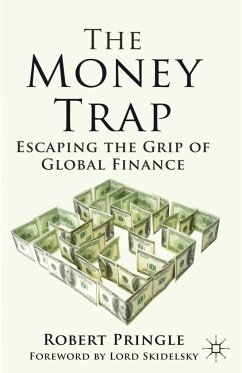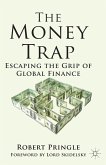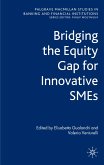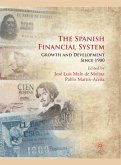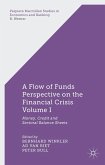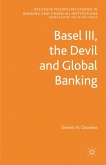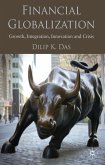The world economy is caught in a money trap. Existing monetary arrangements meet the needs neither of the ageing societies of the West nor of younger emerging economies. This in-depth analysis explains how the world got into the grip of global finance - and how it can escape, with a growing demand for reform.
"The Money Trap looks deeply at the fundamental problems of reforming the international monetary system. Since the end of Bretton Woods, the world economy has not had rules that guided markets toward an efficient equilibrium that benefitted large and small countries. Pringle shows why current international arrangements repeatedly bring crises." - Allan Meltzer, University Professor of Political Economy, Carnegie Mellon University, USA
"In this lucidly written and wide-ranging treatment of the global financial crisis, Robert Pringle traces the modern historical origins of the crisis and draws together many elements of the story. Among the scores of books on the crisis, this one stands out for the accessibility of the account and the clear proposals it advances. It will be read with profit by all manner of practitioners and commentators." - Forrest Capie, Professor Emeritus in Economic History, CASS Business School, London, UK
"The Money Trap embodies an original, ambitious, bold, and provocative approach to the subject of the crisis and the monetary system A valuable addition to the literature available for policy makers, analysts, academics and participants in financial markets." - Dr. Y. V. Reddy, Former Governor, Reserve Bank of India
"This work is probably the most ambitious - and also relevant - attempt to explain the set of causes that led to the disasters of 2007 and following years. It proposes solutions based on economic literature andon the personal views of an author who has devoted most of his career to this fundamental subject. The analysis is fundamental not only for specialists but, more importantly, also for our society. It is a book that should be read by government officials, economists, students and citizens." - Jacques de Larosière, Managing Director of the International Monetary Fund (1978-87), Governor of the Banque de France (1987-93)
"It is always very important to review history, particularlythe history of past mistakes. By doing that, we can see how we should behave in the future when similar crises hit us. Robert Pringle's book does exactly that. It contributes greatly to our understanding of the present international financial system." - Eisuke Sakakibara, Professor of Waseda University, Tokyo, Former Vice Minister of Finance and International Affairs of Japan
"This book cuts through all the carping and obfuscation to pinpoint the biggest burden on business enterprise: the lack of reliable money." - Graham Bannock, Co-author (with R.E.Baxter), The Palgrave Encyclopedia of World Economic History
"In this lucidly written and wide-ranging treatment of the global financial crisis, Robert Pringle traces the modern historical origins of the crisis and draws together many elements of the story. Among the scores of books on the crisis, this one stands out for the accessibility of the account and the clear proposals it advances. It will be read with profit by all manner of practitioners and commentators." - Forrest Capie, Professor Emeritus in Economic History, CASS Business School, London, UK
"The Money Trap embodies an original, ambitious, bold, and provocative approach to the subject of the crisis and the monetary system A valuable addition to the literature available for policy makers, analysts, academics and participants in financial markets." - Dr. Y. V. Reddy, Former Governor, Reserve Bank of India
"This work is probably the most ambitious - and also relevant - attempt to explain the set of causes that led to the disasters of 2007 and following years. It proposes solutions based on economic literature andon the personal views of an author who has devoted most of his career to this fundamental subject. The analysis is fundamental not only for specialists but, more importantly, also for our society. It is a book that should be read by government officials, economists, students and citizens." - Jacques de Larosière, Managing Director of the International Monetary Fund (1978-87), Governor of the Banque de France (1987-93)
"It is always very important to review history, particularlythe history of past mistakes. By doing that, we can see how we should behave in the future when similar crises hit us. Robert Pringle's book does exactly that. It contributes greatly to our understanding of the present international financial system." - Eisuke Sakakibara, Professor of Waseda University, Tokyo, Former Vice Minister of Finance and International Affairs of Japan
"This book cuts through all the carping and obfuscation to pinpoint the biggest burden on business enterprise: the lack of reliable money." - Graham Bannock, Co-author (with R.E.Baxter), The Palgrave Encyclopedia of World Economic History

